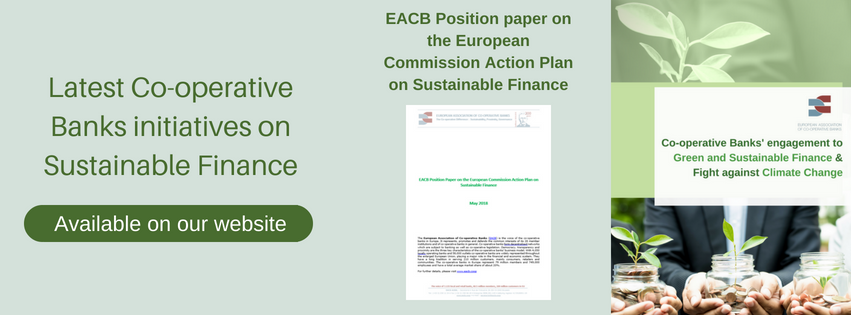Dear Vice-President, the European Commission has launched its Action Plan on Sustainable Finance on 8th March with ambitious measures and timeline. What is the aim and the milestones of this plan?
Europe has taken the lead in the global fight against climate change and the transition to a more sustainable, resource-efficient economy. But to reach our ambitious targets for emissions reductions by 2030, we need Europe's financial sector to be fully on board.
It helps that we are seeing strong growth in sustainable finance today. Demand from investors is increasing, and risk premia on sustainable assets are shrinking. But this change is not happening fast enough.
So in March, we presented our EU Action Plan for Sustainable Finance. It aims to help mobilise banks and financial institutions – local and cross-border - to deliver the substantial private sector investments we need. A first package of legislative proposals on sustainable finance is due already by the end of May.
What will be the first steps of the EU Commission? What are, in your views, the challenges and the broader political context?
Our first goal is to redirect capital towards sustainable investment, notably by facilitating access to green investments for a broader range of investors. All Europeans should have access to certified and labelled green funds, in which they can freely invest their savings.
As part of our May package, we will propose to start setting up an EU-wide classification system for sustainable activities. In other words: common definitions for what is green and what is not. We will first focus on climate change mitigation, which should be in effect by Q3 of 2019, before expanding to broader environmental risks, and then social issues. With this as a reference, we will establish EU standards and labels for green financial products, such as green bonds or investment funds.
We will also propose disclosure requirements for sustainability benchmarks and minimum standards for low-carbon and positive carbon impact benchmarks. This would foster a market standard to measure the carbon footprint of a company, and hence of an entire investment portfolio.
Our second goal is to embed sustainability issues – such as the looming financial stability threat of climate change - into risk management. Also in May, we will propose to increase transparency by requiring institutional investors and asset managers to disclose how they consider sustainability in asset allocation and risk-management.
Our final goal is to foster transparency and long-term thinking in finance. In the EU, listed companies are already required to disclose information on sustainability risks. By 2019, we will revise the current non-binding guidelines to help companies disclose this information in a way that better reflects the recommendations of the FSB's Task Force on Climate Disclosure.
The HLEG has emphasised, in its final report, the importance of mobilising local players to achieve results in financing the energy transitions. In this context, how can you see the role of co-operative banks and their contributions?
The High-Level Expert Group on Sustainable Finance rightly emphasized the role of local banks in making sure that sustainable finance delivers results in communities across the EU. There is, for example, a potentially important role for local and regional co-operative banks in helping to bundle together smaller projects, such as energy efficiency investments, to attract larger investors.
Under our Action Plan, we will also reflect on the European Parliament's suggestion to put in place a green supporting factor to boost funding for green projects. This could provide incentives to choose investments that are good for the climate. Still, any measures would need to be carefully calibrated, and justified from a financial stability perspective. Green does not necessarily mean risk-free.
The transition to a sustainable economy is a challenge, but also an exceptional opportunity that many market participants are already seizing. I hope Europe can lead the way, and I believe the engagement of local and regional banks in favour of climate action will be crucial. By anchoring this transformation locally, it is more likely to succeed globally.




